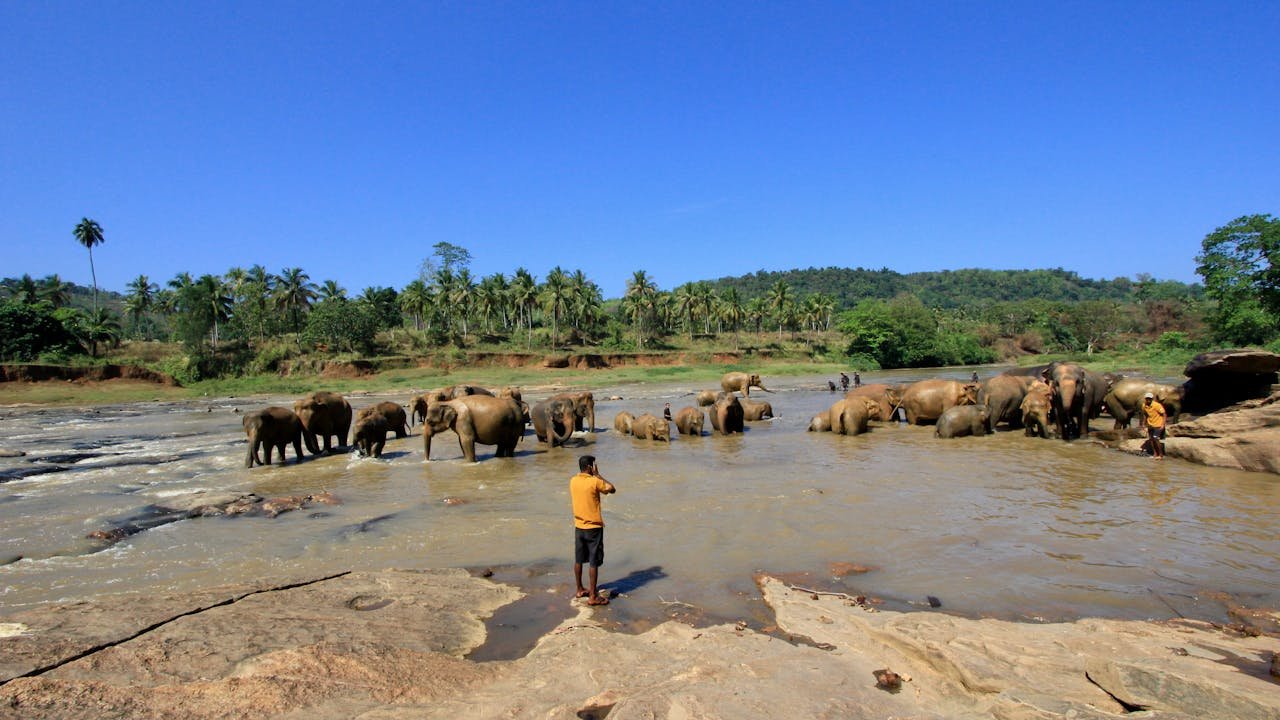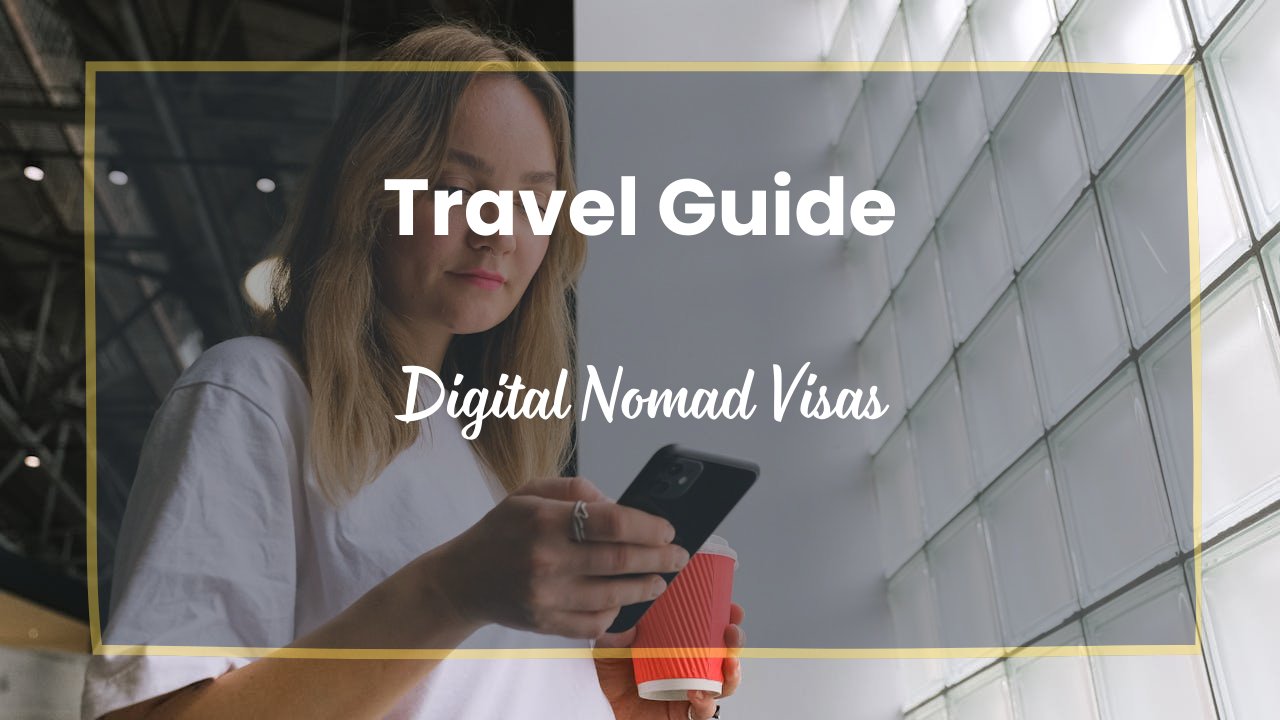Digital Nomad Visas Guide for Countries and Tips
 Digital nomad visas open up new opportunities for remote workers who want to combine productivity and adventure. These visa programs are perfect for those who have always dreamed of working from a beachfront café in Bali or a quaint mountain town in Portugal.
Digital nomad visas open up new opportunities for remote workers who want to combine productivity and adventure. These visa programs are perfect for those who have always dreamed of working from a beachfront café in Bali or a quaint mountain town in Portugal.
What Is a Digital Nomad Visa (DNV)?
A digital nomad Visa is a type of residence permit that allows remote workers to work for clients or employers outside the country. It offers more flexibility than tourist visas, which are limited to a few-month stays and usually prohibit working. Digital nomad visas can last anywhere from six months to two years.
These visas are for freelancers, remote workers, entrepreneurs and online business owners who can prove a steady income. They also require proof of health insurance. Some programs require proof of housing and a background investigation.
Why Countries Are Offering Digital Nomad Visas
Many countries have re-evaluated their immigration policies due to the rise of remote working. These destinations can:
- Increase local economies without putting pressure on the job market.
- Attract professionals with high incomes who will spend on food, housing and other services.
- Extend your stay beyond the typical vacation period to promote tourism.
Digital nomads are a growing number of workers who live in remote areas. To attract them, countries offer simplified application procedures, tax incentives and high-quality Internet infrastructure.
Top Countries Offering Digital Nomad Visas in 2025

1. Portugal
Portugal’s D7 Visa is now the preferred choice of digital nomads. Initially designed for retirees or passive income earners in Portugal, it was originally intended for retirees. You must provide proof of a monthly minimum income (approximately EUR820), health insurance, and accommodation.
Perks: Low cost of living in historic cities with sunny weather.
2. Spain
Spain’s digital-nomad visa allows remote workers to work and live in the country for a maximum of five years. The applicant must provide proof of foreign income and have the required education or experience.
Perks: A vibrant lifestyle, high-quality healthcare and coastal living.
3. Costa Rica
Costa Rica now offers a digital nomad visa along with its Rentista Visa. To qualify, you must earn at least $3,000/month.
Perks: Towns such as Tamarindo or Santa Teresa offer a nature-focused lifestyle, an eco-friendly way of life, tax incentives, and a well-established remote worker ecosystem.
4. Estonia
Estonia is the first EU country to offer a digital nomad Visa. It continues to be a leader in e-government and ease of business. The applicant must earn at least EUR3,500/month.
Perks: A digital-first infrastructure, EU-wide travel access, reliable Internet, and an environment that is startup-friendly.
5. Indonesia (Bali)
The upcoming digital nomad visa in Indonesia allows remote workers to enjoy tax-free living as long as they generate income outside of Indonesia.
Perks: Surf-ready beaches, affordable living, coworking spaces, and rich spiritual traditions.
6. Kenya
Kenya has launched the Digital Nomad Visa, a Class N Work Permit designed for remote employees employed by foreign companies. This is expected to be Africa’s top remote work destination.
Requirements:
- Proof of employment or freelance contracts in Kenya
- Minimum annual income of USD 24,000
- Valid passport (6+ months)
- Proof of Accommodation
- Background Check
Perks:
- Nairobi’s “Silicon Savannah”.
- The tech scene is growing fast.
- The cost of living is affordable.
- Discover cultural festivals, beaches and safaris.
- English is widely spoken
7. Mauritius
Mauritius offers a Premium Visa valid for up to a year and can be renewed. This is an excellent option for remote workers, freelancers and entrepreneurs.
Requirements:
- Proof of income from sources other than Mauritanian
- Valid passports and travel insurance
- Accommodation and long-term stay plan
Perks:
- Indian Ocean Beaches
- Political stability
- Multilingual population (English/French)
- Fiber optic internet coverage is excellent
8. Cape Verde
In 2021, Cape Verde introduced a remote working visa for citizens from Europe, North America, and the Economic Community of West African States (ECOWAS).
Requirements:
- Income: EUR1,500/month (individual), EUR2,700/month (families)
- Health Insurance
- Proof of accommodation
- Return Ticket
Perks:
- Island Lifestyle
- Warm climate all year round
- Locals who are friendly and safe
- The cost of living is low, and visa requirements are minimal.
9. South Africa
The Remote Work Visa for South Africa will be launched in 2025. It is for individuals who earn approximately $3,000/month and wish to stay longer than the standard tourist visa allows.
Expected Requirements:
- Proof of Remote Employment or Self-Employment
- Valid passport and background checks
- Health Insurance
- Proof of Income
Perks:
- From Cape Town to Kruger National Park, enjoy diverse landscapes.
- English language proficiency
- Nomadic communities and coworking spaces in Johannesburg and Cape Town
- Transport and healthcare systems that are excellent
10. Namibia (Recently Launched)
Namibia has introduced a visa for digital nomads in partnership with the Namibia Investment Promotion and Development Board.
Requirements:
- Monthly income of $2,000 plus additional for dependents
- Proof of Income and Health Insurance
- Valid passport for at least six months
Perks:
- Desert landscapes, national parks and other natural wonders are breathtaking.
- Low population density is conducive to peaceful living.
- English is the official language.
- Windhoek, Swakopmund and Windhoek have stable internet.
Eligibility Requirements for Digital Nomad Visas

While requirements vary by country, most digital nomad visa programs ask for:
- Proof of remote income (usually between $2,000–$5,000/month)
- Valid passport
- Clean criminal record
- Health insurance coverage
- Proof of accommodation
Depending on your remote work setup, some countries also ask for a business incorporation certificate or employment contract.
How to Apply for a Digital Nomad Visa
Here’s a general step-by-step guide to applying:
- Choose a country that aligns with your lifestyle and income level.
- Gather documents such as proof of income, health insurance, and identification.
- Submit an online application or visit the nearest consulate or embassy.
- Wait for approval, which can take anywhere from 2 weeks to 3 months.
- Enter the country and register locally, if required.
Pros and Cons of Digital Nomad Visas
Pros:
- Legal long-term stay
- Access to local healthcare and services
- Tax benefits in some jurisdictions
- Opportunity to explore new cultures and build global networks
Cons:
- Complicated tax rules if you’re from a high-tax country
- Application costs and waiting times
- Some visas don’t allow dependents or require higher income thresholds.
Expert Tips for Digital Nomads

Planning wisely and living responsibly are important to make the most of your digital nomad visa and thrive abroad. Here are five essential tips to help guide your journey:
1. Choose Wisely
Before committing to a destination, research internet speed and reliability (mainly if your work depends on video calls or cloud tools), safety levels, access to quality healthcare, and the presence of a digital nomad or expat community. Cities with coworking spaces and networking events can significantly enhance your lifestyle and productivity.
2. Stay Compliant
Always know the rules of your visa. Overstaying or working for a local employer when not permitted can lead to fines, visa cancellation, or bans. Keep your paperwork in order, track your entry and exit dates, and follow local registration requirements. Respecting the visa conditions helps ensure a smooth stay and a welcome return if you visit again.
3. Understand Taxes
Even if you’re working remotely, you may still owe taxes in your home country or your host country, depending on how long you stay. Consult with an international tax advisor to avoid legal trouble or double taxation. Some countries have tax treaties that may work in your favor.
4. Insure Yourself
Travel and health insurance isn’t optional—it’s a lifeline. Get a comprehensive international health plan that covers emergency care, hospital stays, and repatriation. Also consider insuring your gear (like your laptop and camera), especially if you’re in a high-theft area. Companies like SafetyWing and Cigna offer plans tailored to digital nomads.
5. Embrace Local Culture
Cultural curiosity can transform your experience abroad. Learn a few local phrases, follow local customs, and engage with the community. Even small efforts—like greeting locals in their language or observing local etiquette—can earn respect and deepen your connection to the place you’re calling home.
Final Thoughts
Digital nomad visas can help you achieve your dream of a flexible and mobile lifestyle while earning a stable income. They are a legal and sustainable way to do so. These visas offer stability, access to local infrastructure, and the opportunity to immerse oneself in different cultures while maintaining a career.
FAQs
Can I apply for more than one digital nomad visa?
Yes, you can switch countries, but only once. You can change countries after your current visa expires or is cancelled.
Do I have to pay taxes while on a digital nomad visa?
This depends on the country in which you reside and any tax treaties. Consult an expert in taxation.
Are digital nomad visas available for families?
Some countries, such as Costa Rica and Spain, allow for dependents. However, they may have higher income requirements.
How long can I stay on a digital nomad visa?
The validity period of a visa can range from 6 months to 5 years, depending on the country, type, and duration.







